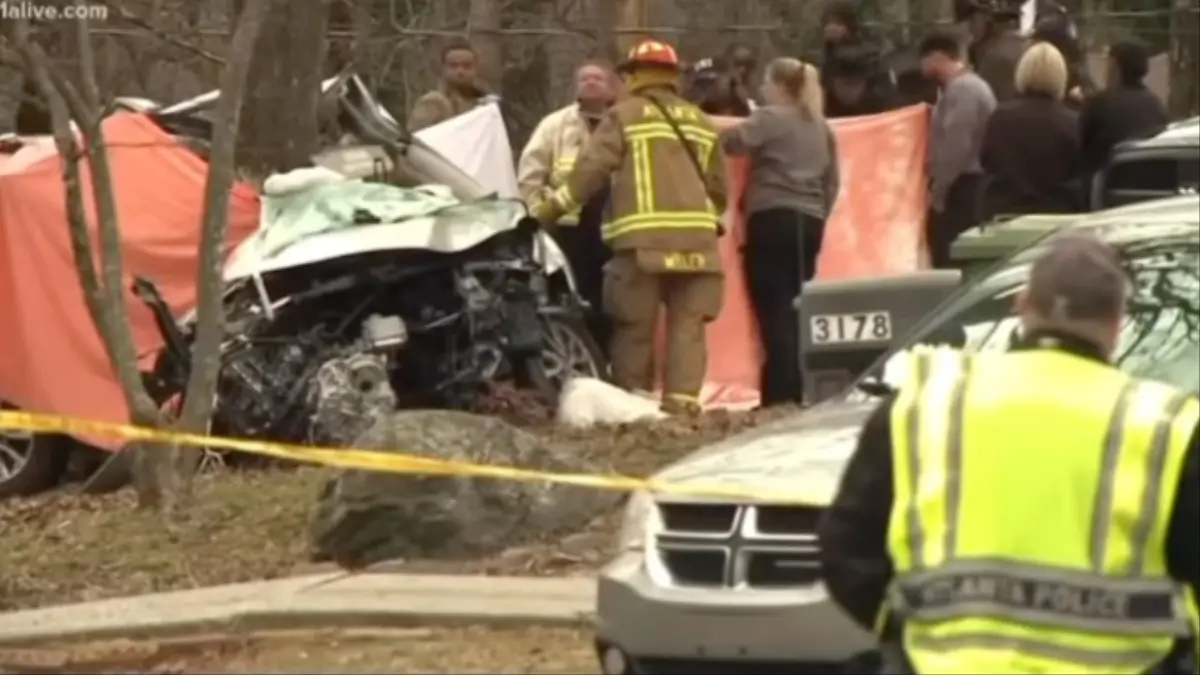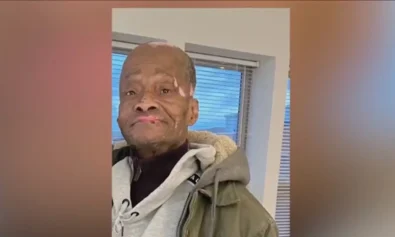Two men dead. Two wildly divergent accounts. But one fact is not up for debate.
David Cannimore and Bryce Metts were not the targets of a U.S. Marshals task force that descended on their south Atlanta neighborhood nearly five years ago.
According to law enforcement, Cannimore, who had a warrant for failure to appear in court, saw the unmarked cars gathering on the street and figured they were there for him. He jumped into his Nissan Rogue and drove away. Metts tagged along, the Georgia State Patrol reported.

The marshals said they noticed Cannimore drive away, but there was “No pursuit,” according to a news release from the GSP.
According to Georgia law, a pursuit is “an event involving one or more law enforcement officers attempting to apprehend a suspect who is attempting to avoid arrest while operating a vehicle by using highspeed driving or other evasive tactics, such as driving off a highway, turning suddenly or driving in a legal manner but willfully failing to yield to an officer’s emergency signal to stop.”
Roughly five blocks away from where he started, while trying to negotiate a curve, Cannimore lost control of his car and left the roadway, striking a utility pole before crashing into a tree. He was pronounced dead at the scene, as was Metts. Video after the crash showed the driver’s side ripped off the vehicle.
But why was Cannimore still driving so fast if the marshals weren’t, as they said, in pursuit? And if he was on the run, why would Metts leave with him?
Attorney Harry Daniels, who represents the families of Cannimore and Metts, said not only did task force members — made up of local and national officers — chase the Nissan Rogue, but they initiated it. Cannimore was not on the run; he was just in the wrong place at the wrong time, suddenly surrounded by unmarked police cars as he left his home, Daniels said.
“And the U.S. Marshals acknowledged there was a chase in statements that were never released,” said Daniels, who obtained those admissions as part of discovery evidence in a federal wrongful death lawsuit against the U.S. Marshals.
“We have plenty of witnesses who saw a chase,” he said. “Someone told the GSP a lie.”
The marshals were attempting to serve a felony warrant for homicide, robbery and aggravated assault.
“They knew it wasn’t them,” Daniels said. “But they chased them anyway.”
“A grave injustice,” Daniels’ co-counsel, Gerald Griggs, said in an Instagram post.
This isn’t the first controversy involving a U.S. Marshal’s fugitive task force. Officers Eric Heinze and Kristopher Hutchens face charges from their participation in a U.S. Marshals task force that entered an Atlanta apartment and fired more than 90 times at Jamarion Robinson, a 26-year-old unmedicated schizophrenic whom they were attempting to arrest, in August 2016.
A Fulton County grand jury indicted Heinze and Hutchens in October 2021, charging them with two counts of felony murder, aggravated assault with a deadly weapon, burglary in the first degree, false statement, and violation of oath by a public officer. The case was moved to federal court, but Fulton prosecutors are seeking to add new malice murder, felony murder, and conspiracy charges.


